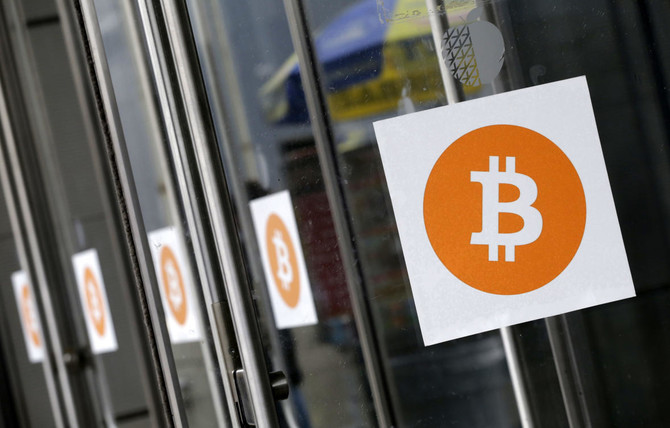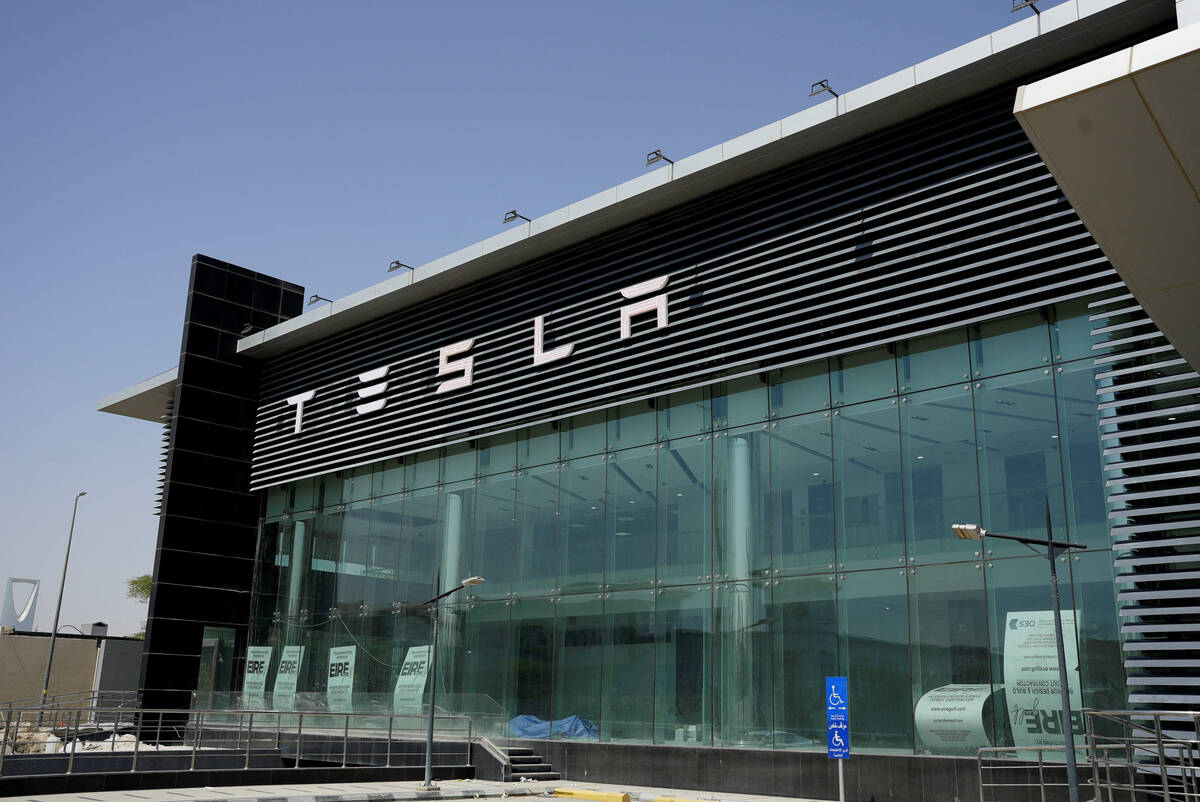NEW YORK: It is worth more than an ounce of gold right now, it is completely digital and it is the currency of choice for the cyberattackers who crippled computer networks around the world in recent days.
When the attackers’ “ransomware” sprang into action, it held victims hostage by encrypting their data and demanding they send payments in bitcoins to regain access to their computers. Bitcoin has a fuzzy history, but it is a type of currency that allows people to buy goods and services and exchange money without involving banks, credit card issuers or other third parties.
Here is a brief look at bitcoin:
How bitcoins work
Bitcoin is a digital currency that is not tied to a bank or government and allows users to spend money anonymously. The coins are created by users who “mine” them by lending computing power to verify other users’ transactions. They receive bitcoins in exchange. The coins also can be bought and sold on exchanges with US dollars and other currencies.
How much is it worth?
One bitcoin recently traded for $1,734.65, according to Coinbase, a company that helps users exchange bitcoins. That makes it more valuable than an ounce of gold, which trades at less than $1,230.
The value of bitcoins can swing sharply, though. A year ago, one was worth $457.04, which means that it is nearly quadrupled in the last 12 months. But its price doesn't always go up. A bitcoin’s value plunged by 23 percent against the dollar in just a week this past January. It fell by the same amount again in 10 days during March.
Why bitcoins are popular
Bitcoins are basically lines of computer code that are digitally signed each time they travel from one owner to the next. Transactions can be made anonymously, making the currency popular with libertarians as well as tech enthusiasts, speculators — and criminals.
Who is using bitcoin?
Some businesses have jumped on the bitcoin bandwagon amid a flurry of media coverage. Overstock.com accepts payments in bitcoin, for example.
The currency has become popular enough that more than 300,000 daily transactions have been occurring recently, according to bitcoin wallet site blockchain.info. A year ago, activity was closer to 230,000 transactions per day.
Still, its popularity is low compared with cash and cards, and many individuals and businesses will not accept bitcoins for payments.
How bitcoins are kept secure
The bitcoin network works by harnessing individuals’ greed for the collective good. A network of tech-savvy users called miners keep the system honest by pouring their computing power into a blockchain, a global running tally of every bitcoin transaction. The blockchain prevents rogues from spending the same bitcoin twice, and the miners are rewarded for their efforts by being gifted with the occasional bitcoin. As long as miners keep the blockchain secure, counterfeiting shouldn't be an issue.
How bitcoin came to be
It is a mystery. Bitcoin was launched in 2009 by a person or group of people operating under the name Satoshi Nakamoto. Bitcoin was then adopted by a small clutch of enthusiasts. Nakamoto dropped off the map as bitcoin began to attract widespread attention. But proponents say that does not matter: The currency obeys its own internal logic.
An Australian entrepreneur last year stepped forward and claimed to be the founder of bitcoin, only to say days later that he did not “have the courage” to publish proof that he is.
What is bitcoin? A look at the digital currency
What is bitcoin? A look at the digital currency

Oil Updates — prices set to drop for a 2nd week over US-China trade war concerns

LONDON: Oil prices rose on Friday after settling more than $2 a barrel lower in the previous session, but were set to drop for a second straight week on concerns over a prolonged trade war between the US and China.
Brent futures rose 90 cents, or 1.4 percent, to $64.23 a barrel by 9:46 a.m. Saudi time, while US West Texas Intermediate crude futures rose 88 cents, or 1.5 percent, to $60.95.
Brent is set to fall 2.1 percent this week, while WTI is on track to decline 1.8 percent. Both benchmarks declined 11 percent in the previous week.
A prolonged dispute between the world’s two biggest economies is likely to reduce global trade volumes and disrupt trading routes, and eventually weigh on global economic growth.
“We expect prices will remain under pressure as investors assess ongoing trade negotiations and rising tensions between Washington and Beijing,” BMI analysts said in a note on Friday.
Concerns about a global economic slowdown were also putting oil prices under pressure, Daniel Hynes, senior commodity strategist at ANZ, said in a note.
The bank forecasts oil consumption to decline by 1 percent if global economic growth falls below 3 percent, Hynes said.
US President Donald Trump raised tariffs against China to 145 percent on Thursday, even after announcing a pause on heavy tariffs against dozens of trading partners earlier this week. China, in turn, has announced an additional import levy on US goods.
The US Energy Information Administration on Thursday lowered its global economic growth forecasts and warned that tariffs could weigh heavily on oil prices, as it slashed its US and global oil demand forecasts for this year and next year.
BMI analysts said the OPEC+ meeting on May 5 could prove decisive, signalling appetite to intervene in support of market stability.
“The announcement of additional supply growth at the next meeting would likely be a trigger for a renewed selloff,” the analysts said.
Cybertrucks in the desert: Tesla launches in Saudi Arabia

- Tesla launches operations in Saudi Arabia amid improved relations
- Saudi aims for 30 percent EV adoption in five years
- Tesla plans online orders, pop-up stores, and charging stations
RIYADH: Tesla launched operations in Saudi Arabia on Thursday, a sign that CEO Elon Musk has patched up relations with the Kingdom and that the oil capital was moving forward with an ambitious electric-vehicle policy.
A Tesla Cybertruck and a redesigned Model Y sedan dominated a plaza dotted with palm trees, as the EV maker officially opened for business.
A small crowd tried out the vehicles as a massive outdoor video screen showed a Cybertruck plowing through a dusky desert, leaving behind plumes of sand.

Tesla needs new customers: globally, it posted a 13 percent drop in first-quarter sales, its weakest performance in nearly three years, driven by a backlash against Musk’s role in the Trump administration, rising competition and an aging product lineup, beyond the refreshed Model Y.
The Kingdom, a major investor in Tesla rival Lucid, aims for 30 percent EV adoption five years from now, up from about 1 percent last year.
Musk engaged in a high-profile feud with the Kingdom’s sovereign wealth fund over a potential investment nearly a decade ago, but relations between Riyadh and Musk have improved since he took a high-profile role in US President Donald Trump’s election campaign and administration.
Trump is set to visit Saudi Arabia in the coming weeks in his first foreign trip. Local Tesla executives at the launch described plans to allow online ordering of vehicles, open pop-up stores in malls and to build Supercharger stations and service centers, but Musk did not show up in person or by video.
“I’m honestly very disappointed I cannot see him,” said fan Mohammed Usama, who said he was “in love” with the Cybertruck. “I was very close to the stage, but unfortunately he didn’t come.”

Saudi has a long way to go to hit its EV goals. The country’s main east-west highway does not have a single charging station in the 900-kilometer (559 mile) stretch linking the financial and religious cities of Riyadh and Makkah.
Saudi Arabia in 2024 had just 101 EV charging stations, compared with 261 in neighboring UAE, a country with a third the population, data from Statista based on Electromaps showed. Tesla plans to put its first charging stations in three cities.
Rival EV brands like China’s BYD and Zeekr, along with the Saudi Public Investment Fund-backed Lucid, already have Saudi beachheads.
The feud between Musk and the governor of the Kingdom’s sovereign wealth fund began when Musk tweeted in 2018 that he had “funding secured” to take Tesla private after a meeting with the fund.
That led to a lawsuit from investors when a bid failed to materialize. “You are throwing me under the bus,” Musk wrote in a text to fund chief Yasir Al-Rumayyan, according to court documents.
Shortly after the US presidential election, Trump, Rumayyan, and Musk were all pictured together sitting in ringside seats at an Ultimate Fighting Championship event in an early signal that relations had healed.
Global markets rattle as US tariffs on China hit 145%

- Initial market gains wiped out; US stocks dive and oil slumps over renewed trade fears
WASHINGTON: The global economy was thrown into turmoil on Thursday as the US-China trade war sharply escalated, overshadowing a temporary sense of relief sparked by President Donald Trump’s earlier decision to scale back sweeping tariffs on other international partners.
While investors initially cheered a perceived de-escalation in the US’ trade stance, it soon became clear that the administration was doubling down on its economic confrontation with Beijing—sending markets into a tailspin and raising alarm over the direction of global trade.
Just a day after hinting at a broader pause in tariff threats, the White House confirmed that the cumulative tariff rate imposed by the US on Chinese imports this year had reached a staggering 145 percent, not the previously reported 125 percent.
The correction stemmed from the fact that the latest hike builds on a 20 percent base tariff already in place. In retaliation, China has slapped its own 84 percent levies on US goods, signaling its readiness for a prolonged standoff.
The dramatic escalation came in stark contrast to Trump’s softer stance toward other global trade partners. The president maintained a 10 percent blanket tariff on most countries but walked back harsher threats—particularly against the EU, which had been bracing for a 20 percent hit. That reversal prompted Brussels to suspend for 90 days its planned retaliatory tariffs on €20 billion worth of US goods.
Financial markets
Amid the mixed signals, global financial markets reacted in sharply divergent ways. Asian and European markets soared early Thursday, buoyed by the initial news of Trump’s restraint. Tokyo’s Nikkei 225 surged 9.1 percent, South Korea’s Kospi climbed 6.6 percent, and Germany’s DAX jumped 5.4 percent, marking their first trading sessions since the US policy shift.
However, sentiment soured quickly in the US as investors digested the deeper implications of the escalating conflict with China. The S&P 500 dropped 5 percent, the Dow Jones Industrial Average plummeted by 1,746 points, and the Nasdaq Composite sank 5.8 percent, wiping out optimism fueled by a surprisingly positive inflation report.
President Trump has framed the tariffs as part of a broader strategy to rewire the global economy, encouraging manufacturers to return to US soil. His commerce secretary, Howard Lutnick, remained upbeat, declaring on social media, “The Golden Age is coming. We are committed to protecting our interests, engaging in global negotiations, and exploding our economy.”
Meanwhile, international leaders struck a more cautious tone. European Commission President Ursula von der Leyen welcomed Trump’s partial retreat, saying, “We want to give negotiations a chance,” but warned that the EU would not hesitate to reinstate countermeasures if talks failed to deliver results.
Similarly, Canadian Prime Minister Mark Carney described the US shift as a “welcome reprieve” and confirmed that Ottawa would initiate trade negotiations with Washington following Canada’s April 28 elections.
China also signaled both resistance and openness. In a symbolic move, Beijing announced it would restrict the number of Hollywood films allowed into the country, but left the door open for dialogue. Commerce Ministry spokesperson He Yongqian called on the US to meet China halfway and resolve differences through “mutual respect, peaceful coexistence, and win-win cooperation.”
Oil markets react
Commodities markets were not spared from the uncertainty. Oil prices, which had rallied the previous session, reversed course as investors reassessed the implications of the trade tensions.
US West Texas Intermediate crude fell $2.22 or 3.6 percent to $60.13 per barrel, while Brent crude dropped $2.04 or 3.1 percent to $63.44 per barrel.
Pakistan markets rebound as Trump makes tariff U-turn

- US President Donald Trump has announced a 90-day delay in tariffs
- KSE-100 Index surged by over 2,036 points following the announcement
KARACHI: Pakistan’s stock market bounced back on Thursday after US President Donald Trump announced a 90-day delay in tariffs, analysts said.
The KSE-100 Index surged by over 2,036 points (1.75 percent), following the announcement.
On Wednesday (April 9), the KSE-100 Index had dropped 5 percent, leading to a 45-minute halt in trading.
Zafar Moti, CEO of Zafar Moti Capital Securities, said the decision helped calm investors, while Ahsan Mehanti, Managing Director and CEO of Arif Habib Group, said the pause in tariffs was seen as good news by investors.
“The Pakistan Stock Exchange closed on a positive note,” Topline Securities said in its daily market review.
“This upward trajectory was fueled by a strong rebound in US and other international equity markets, with the index rallying as much as 3,331 points during intraday trading.”
Chinese diplomat condemns US tariffs as ‘abusive’ and warns of global trade damage

- Minister Counselor in the Embassy of China Ma Jian says US tariffs are “economic bullying.”
RIYADH: US tariffs imposed on Chinese goods are “abusive” and damaging to global supply chains, a diplomat from the Asian country to Saudi Arabia has said.
Speaking at a media roundtable held in the Chinese Embassy in Riyadh, Minister Counselor Ma Jian said his country’s government expresses its strong condemnation and firm rejection of the measures taken by President Donald Trump.
On Wednesday, the US government announced a three-month pause on all the “reciprocal” tariffs that had gone into effect — except those affecting China, which were raised to 125 percent, hours after Beijing boosted the duty on American goods to 84 percent.
Jian said the actions of the White House “violate basic economic rules and market principles and disregard the balance of interests reached in multilateral trade negotiations, and ignore the fact that the United States has long gained significantly from international trade.”
The official told Arab News: “The Chinese government expresses its strong condemnation and firm rejection of this action.”
He added: “The US’ abusive behavior by imposing tariffs seriously harms the trade system and the rules of the World Trade Organization and also harms the global economy.
“Moreover, the abusive imposition of tariffs also causes damage to global supply chains and the multilateral trading system.”
Jian stated that analysis of data from the World Trade Organization shows that under this US policy, the gap between countries will widen, with less developed countries suffering more severe consequences.
“We demand and hope that the US side stops this wrong behavior and acts in response to the calls of the peoples of the world to achieve mutual benefit and greater development of the global economy,” Jian told Arab News.
When asked what, if any steps China will take to mitigate the tensions amidst the trade war with the US following the recent retaliatory tariffs, the Minister Counselor stated: “We will follow the path that the President (Xi Jinping) affirmed — of mutual respect, peaceful deliberation, and cooperation for mutual benefit — as a sign of developing relations with the US.”
He added: “However, we will take a few measures to safeguard our legitimate and reasonable rights and interests.
“The nature of cooperation and dealings between countries is mutual benefit.”
Jian said the US is using tariffs “as a weapon to exert maximum pressure and advance selfish interests,” adding: “These are acts of unilateralism, protectionism, and economic bullying.”
He went on to say that the “zero-sum game” the US has pursued under the pretext of pursuing “reciprocity” and “parity” is, by its very nature, a pursuit of “America First” and “American exceptionalism.”
The Minister Counselor added: “They aim to overthrow the existing international economic and trade order through tariffs.”
The diplomat went on to say: “They place American interests above the overall interests of the international community and serve American hegemony at the expense of the legitimate interests of other countries. They will inevitably be widely rejected by the international community.”
China-US trade in goods has historically grown rapidly since their diplomatic ties were established in 1979.
UN figures show that in 2024 the volume of trade in goods between the two reached $688.28 billion — 275 times the volume of the trade in 1979 and more than eight times the volume of trade in 2001, when China joined the World Trade Organization.
In a regular press conference on April 8, foreign minister spokesperson Lin Jian said that China will take necessary measures to firmly safeguard its legitimate and lawful rights and interests.
“If the US decides not to care about the interests of the US itself, China, and the rest of the world and is determined to fight a tariff and trade war, China’s response will continue to the end,” he said, adding: “China is not a seeker of trouble but make no mistake, when challenged we will never back down. Intimidations and threats never work with China.”















